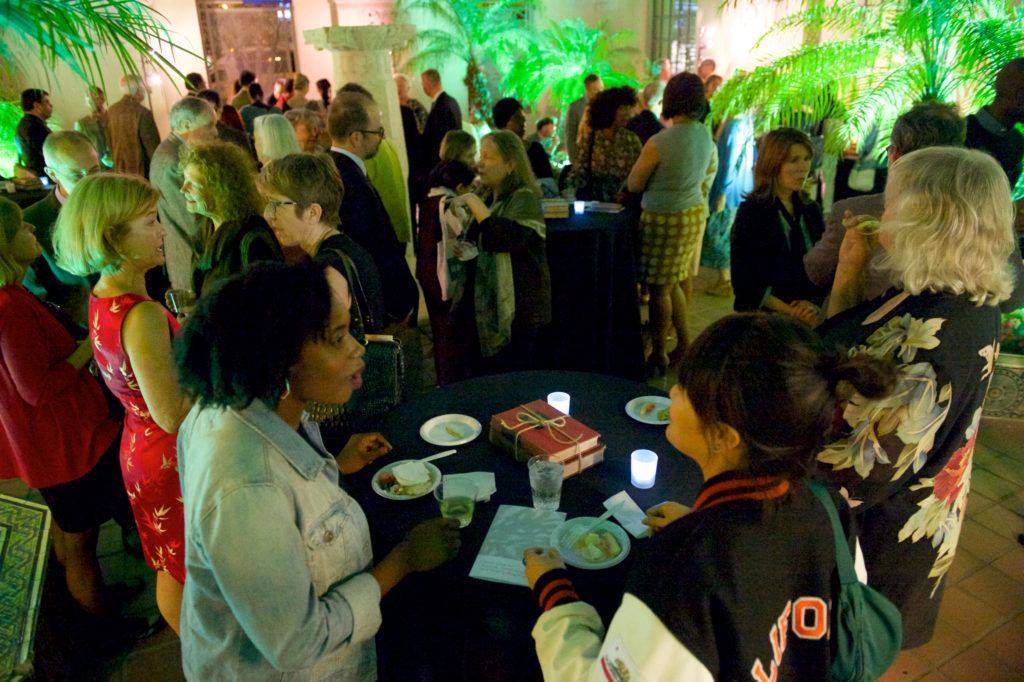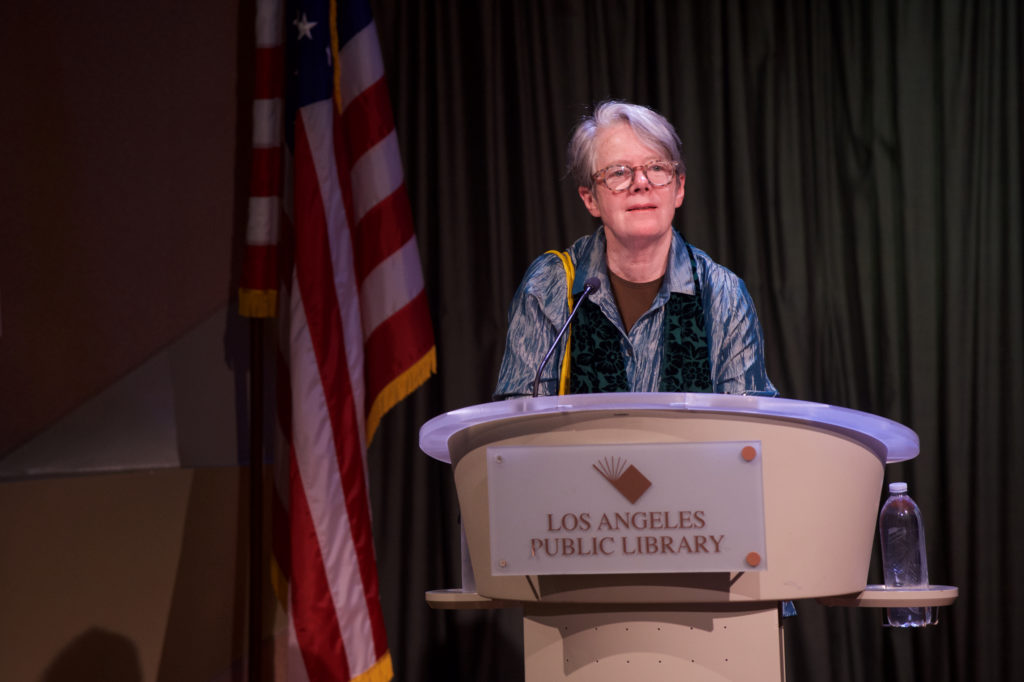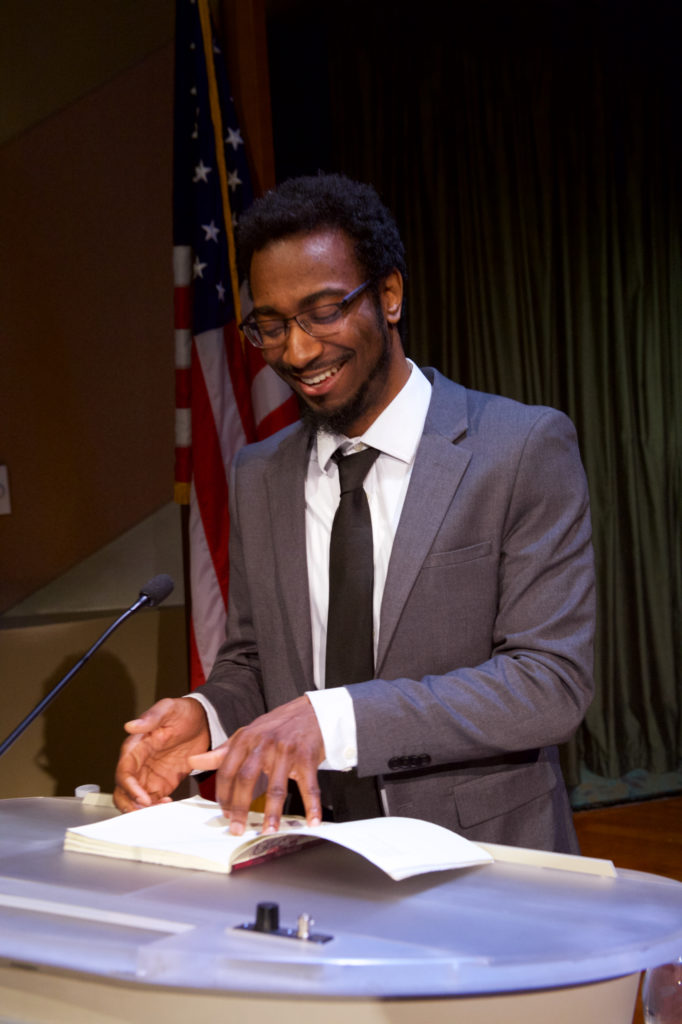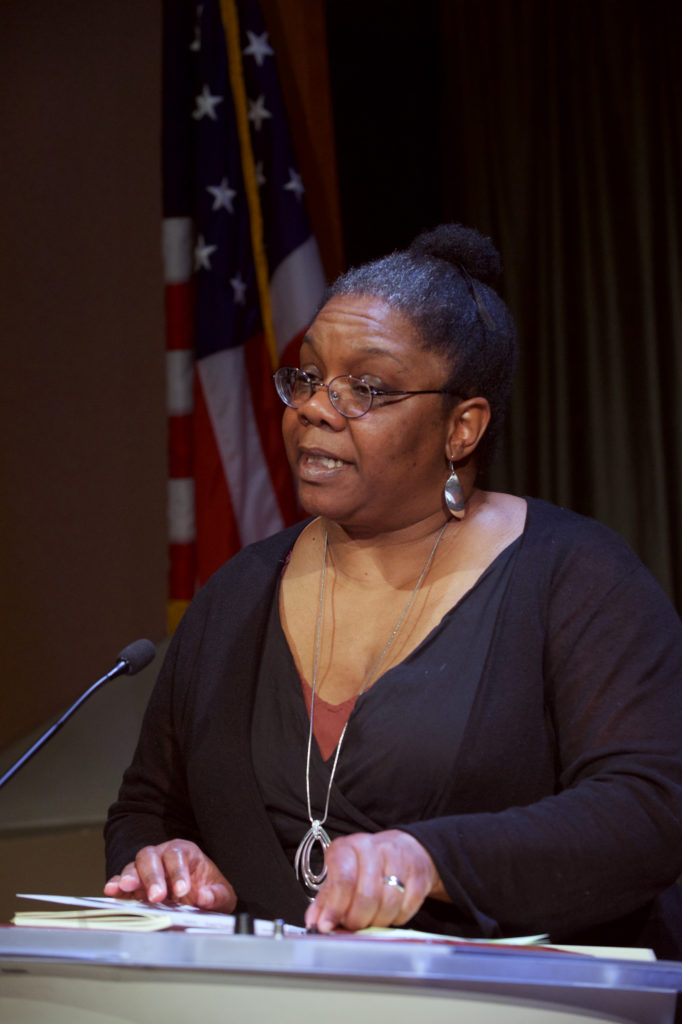Our 25th Annual Tufts Poetry Awards Ceremony

Every couple of months I find myself in a conversation where I’m defending the endurance and relevance of poetry—you’d be surprised how many poetry antagonists you can find both in the literary world and outside of it. These conversations have always felt important, but they feel especially important right now as we are in what Tufts Director Lori Anne Ferrell recently called “a time when language is being applied roughly and recklessly in public forums across media and the nation.”
Since I’ve been involved in the Kingsley & Kate Tufts community, I’ve had a sense that if every one of those poetry foes could attend a Tufts Awards event, they’d finally get it. Even for those of us who study poetry as a career, the Tufts events are rejuvenating as they remind us of the particular power poetry holds.
Perhaps this is one reason that awards week is our favorite week in the Tufts poetry community. This year, the 25th anniversary of the Kingsley Tufts Award, elicited an especially warm crowd. The culminating event of the week, the awards ceremony at the Los Angeles Public Library, brought together a room full of past award-winners, local poets, and the larger Tufts Awards community in addition to the much-anticipated winners of this year’s awards: Vievee Francis and Phillip B. Williams.

Before we heard from the poets, the awards ceremony began with remarks from some of the poetry world’s finest. Alice Quinn, executive director of the Poetry Society of America, paid tribute to Kingsley and Kate Tufts by invoking these words from Gerard Manley Hopkins: “There lives the dearest freshness deep down things.” Next, Lori Anne Ferrell, director of the Tufts Awards, honored the distinguished legacy of Tufts directors and judges. Finally, we heard from Don Share, editor-in-chief of Poetry Magazine and chair of the current judging panel, who introduced the award recipients. Share described Vievee Francis’ poetry as a place in which “the unseen becomes seen, and the unheard becomes heard” and Phillip B. Williams’ poetry as “questioning, unflinching, and passionate as he is.”
When the poets stood to read their work, the auditorium was primed to see what the judges and screeners had seen in their poems. First, Kate Tufts Discovery Award winner Phillip B. Williams read from his book Thief in the Interior. Beginning with his poem “Sonnet with a Cut Wrist and Flies” and ending with “Bound,” Williams’ strong voice commanded more attention than his humble presence previously had. His reading drew attention to the formal experiments of his work—a sonnet with thirteen “thirteenth” stanzas—while also causing listeners to confront the auditory effect of the violent and derogatory language that his poetry grapples with as in his poem “Apotheosis.”

Then Kingsley Tufts Poetry Award winner Vievee Francis read. Her graciousness showed from the beginning of her reading as she thanked Williams for his words “the earth spins and we, utterly, are spun.” She began her reading with her poem “Taking It” in which the questions burn longer than their answers: “What kind of girl are you?” and “Where else was all this rage to go?” As she explained the inspiration behind the poems of Forest Primeval, she described that it was in western North Carolina where she realized she had an “argument with Longfellow, the pastoralist, and romanticism itself.” Francis continued to read poems that engaged some of the main themes of this body of her work: the antipastoral, female experience, and the limitations inherent in language. Her smooth and steady voice helped us to access these themes.

As the listeners emptied out into the lobby for book signings with the poets and into the courtyard for drinks, there was the familiar and vibrant spirit of all Tufts events. It’s a feeling of unity and interconnectedness, a feeling of urgency and longevity, a feeling that poetry’s artistic form is essential to its content. Over the last 25 years Tufts has cultivated a community confident in the persistence of poetry—we welcome the upcoming years with that same confidence.
—Ashley Call
Share